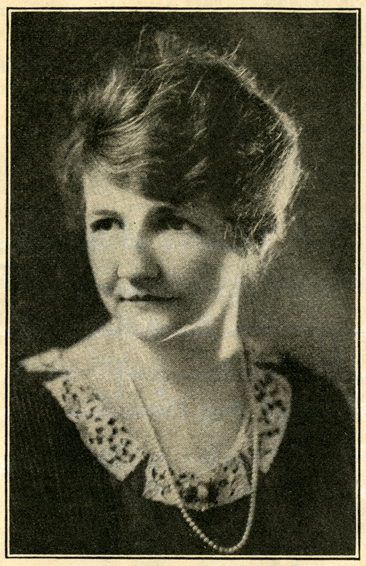1898–2 May 1955

Lula Vollmer, playwright, christened Louisa Smith, was born at Keyser (afterwards renamed Addor) in Moore County, the daughter of William Sherman and Virginia Vollmer. Her father was in the lumber business, and consequently the family made frequent moves as the locale of his work changed. She spent her early girlhood in Carthage and Cameron but went to boarding school at age eight. In 1918 she was graduated from the Normal and Collegiate Institute of Asheville and then went to New York for a time and became associated with the business office of the Theater Guild. She also worked in Atlanta.
Her first and most successful play was Sun-Up, which depicted the people of the southern mountain region. It was produced at the Provincetown Theater in New York, opening on 24 May 1923; subsequently, it played in Chicago, London, Amsterdam, Paris, and Budapest. She donated her royalties, amounting to over $40,000, to educational projects for the mountain people. In 1925 Sun-Up was published in book form. Between 1923 and 1946 other plays followed, among them The Shame Woman, The Dunce Boy, Trigger, and Sentinels. About 1930 she adapted Troyka: A Play, by Imre Fazekas, from Hungarian.
Hundreds of hopeful young actors performed in her plays, which were produced by amateurs across the United States. Grant Wood was scene designer for one of her early works. She also wrote a variety of radio serials including Moonshine and Honeysuckle, Grits and Gravy, The Widow's Son, and The Hill Between. In later years she wrote short stories for the Saturday Evening Post, Collier's Magazine, and others.
Except for Paul Green, Lula Vollmer had more plays produced in New York than any other North Carolina dramatist. An Episcopalian, she was a member of the Author's League of America and made her home at 1 MacDougal Alley, New York City. She was buried in Attalla, Ala., survived by two sisters and a niece.